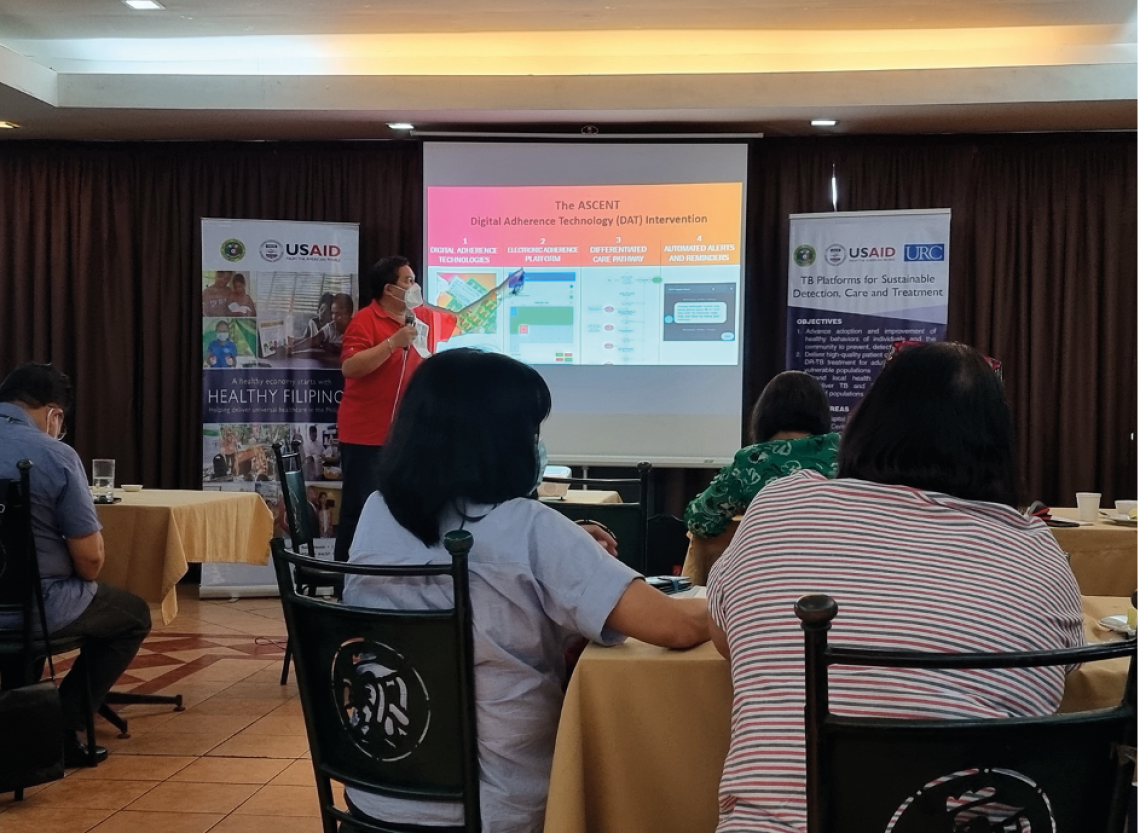Dr. Andre Daniel E. Villanueva, project manager of ASCENT Philippines, urged the health facilities in Bulacan province implementing digital adherence technology (DAT) for tuberculosis (TB) treatment to continue offering DAT to patients even beyond the research phase of the project. Some healthcare providers no longer offer DAT since research data collection ended on 30 July 2022. They thought that DAT use was only for the purpose of research.
In a partners’ meeting organized by Bulacan Provincial Health Office, Dr. Villanueva highlighted the benefits of DAT: As of 31 July 2022, adherence rate stood at 88% among drug-sensitive tuberculosis patients in Bulacan and 87% among drug-resistant TB patients. Improving treatment adherence and outcomes is key to achieving the End TB Strategy’s targets of reducing TB incidence rate by 90% and the number of TB deaths by 95% compared with 2015.
Dr. Villanueva presented the DAT intervention in layman’s language to help the TB program implementers from non-DAT-using health facilities see and understand the value of this innovation. He assured those providing DAT that the project is working with the Department of Health and partners, including the Philippine Business for Social Progress (PBSP), on transitioning to the next iteration of DAT work in the country to ensure that DAT use is continuously supported and scaled up after ASCENT project implementation concludes in December 2022. An update on this will be provided during the ASCENT initial project implementation results dissemination forum on 24 November 2022.
DAT has already proven to be of great help for TB patients as well as health care providers. That’s why ASCENT aims for the continued use of this innovation in the participating facilities and its future scale-up with the help of multiple partners in the Philippines. Read more: ASCENT Philippines and partners prepare for scale-up and handover of the DAT intervention.
Photo credit: ALSantiago/KNCV
The Unitaid-funded and supported ASCENT project is led by KNCV Tuberculosis Foundation in partnership with The Aurum Institute, London School of Hygiene & Tropical Medicine, and PATH.
